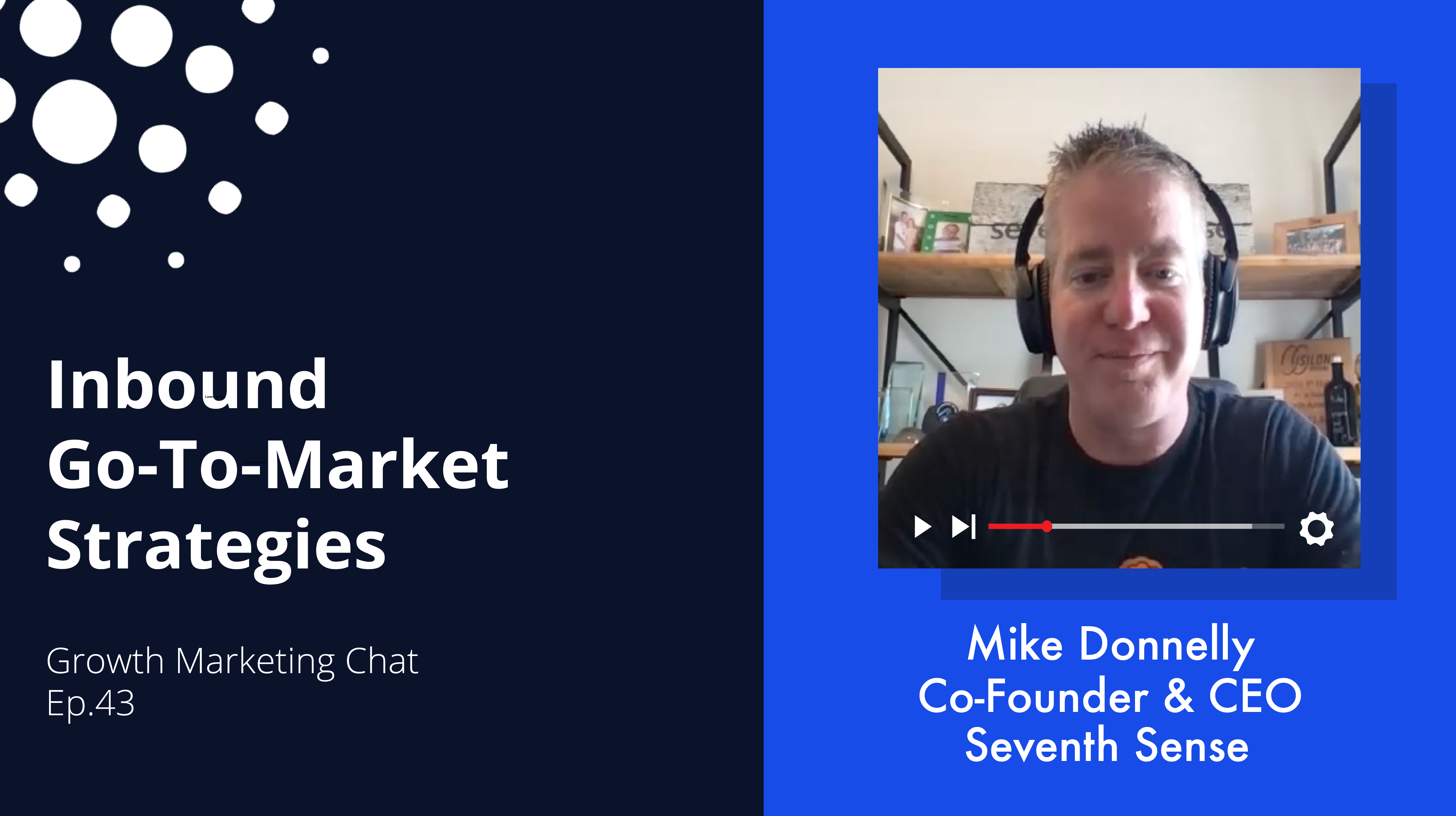Are you trying to hire your growth marketing dream team? Maybe you already have one, with just a few pieces of the puzzle missing.
Finding the best talent that aligns with your company objectives, culture and aspirations can be a long, arduous process. Hiring isn’t a task to be done lightly. You want to ensure every member of your team has the growth marketing skills, knowledge and motivation necessary to drive revenue for your business.
Everyone in your department should contribute expertise and experience that will lead to the creation, execution and evolution of your marketing strategy.
Hire Growth Marketing Superstars
To set you up for hiring success, Nick Ezzo, VP of Marketing at Auditoria.AI, has actionable advice for tackling the hiring process to build yourself a top-notch marketing team.
In this episode of Growth Marketing Chat, learn:
-
When the right time is to hire a new team member
-
How to assess a candidate’s competence
-
How to analyze your talent pool’s compatibility with your company culture and existing team
Tune in now and prepare to hire your next marketing superstar!
Video Transcript:
CAROLINE: Hi, today I am here with Nick Ezzo. He’s the Vice President of Marketing at Auditoria. He’s a very experienced marketing leader who has worked both at really large companies with large teams and early-stage companies where he’s been a one-person marketing team as a marketing leader. So that gives him a very interesting perspective on teams and how do you build a team for success. Nick, thank you so much for being with me today.
NICK: Glad to be here, Caroline.
CAROLINE: So, my question for you today is obviously, I think you can talk to any marketer you want, they’re all gonna tell you they need more people at any time. But hiring the right person at the right time is really important. So how do you know when it’s the right time to hire?
NICK: Well, it’s an excellent question. And when I think about hiring, I think about what happens when you hire somebody ahead of time before you actually have enough for them to do. So, I have a philosophy about hiring and that before you hire another person on your team, whether it’s the first person or the 10th person, you should feel pain. And that pain should be prolonged and profound. So, I mean it has to be like unbearable pain for a prolonged period of time. Because all of us go through ups and downs in our day-to-day life where we have too much to do. And sometimes the temptation is to take that short-term pain that’s not very profound and to try to fill that role with a person. And if you don’t do it carefully and thoughtfully, then you might end up hiring somebody who really has nothing to do after the first month that they’re on the job, and then they have to go out and find things to do. And there’s a lot of bad things that can happen there, but it’s really a shame when you have an employee who’s standing around waiting to be told what to do and they don’t have anything to do. So that’s my philosophy on hiring, prolonged and profound pain.
CAROLINE: Right, right, and that’s a good philosophy. Especially when you spend a lot of time hiring the right person for your team, you don’t want to lose them because they’re bored, right, because they don’t have anything to do during the day.
NICK: That’s right.
CAROLINE: And so, my follow-up question, once you know, okay, I do need someone to fill a specific role, how do you hire the right person?
NICK: Well, finding the right person is a combination of really two things, maybe more than two things. But the two things I think about is their competence and their compatibility. So, are they competent? Can they do the job? Are they the best person for this job? Are they an A-player at the top of their game? Literally, are they the best person sitting in that chair?
And so, there’s lots of things that we can do to assess that. You can give people writing, ask for writing samples, you can have them do presentations, you can have them do 30, 60, 90-day plans. But then there’s also the… That’s the competence part of it, but there’s also the compatibility part of it.
Because you can have an A-player who is an F or a D when it comes to interacting with other people. And we’ve all been on teams where you’ve got somebody who’s very, very smart that no one wants to deal with. So that compatibility has a lot to do with the fit. And do they fit into your culture? Well, first of all, do you know what your culture is? And if you do, then you know what the adjectives are that describe the culture. Are we innovative? Are we friendly? Are we aggressive? Are we collaborative? So, whatever your corporate culture is and however it’s reflected, this person needs to fit in with that culture, or at least fake fitting in good enough that no one notices that they don’t fit in.
Because in both of those situations where you hire somebody who’s not competent or you hire somebody who’s not compatible, you will end up having to terminate them, and it will not be pleasant when you do that. So anyway, I say do whatever you can to figure those things out. Get input from the hiring team. Don’t fall in love with a candidate. Know that there’s always 10 other candidates that are out there. If you lose one because they’re not fully competent, or they can’t grow, or they’re not a fit, let them go because there are other fish in the ocean, if you will.
CAROLINE: Right, right, right. I love this. Don’t fall in love with a candidate. It’s so true. Especially when you spend a lot of time recruiting someone and it comes that time that you’re like, okay, I really need to fill this role, and you’re kind of willing to oversee some things that may not work. So yeah, that’s really, really good advice.
NICK: That’s right ’cause you will. If you fall in love with a candidate, you will overlook many of their flaws that are glaring that other people see. That’s why you should always have multiple people, including people who are very critical who can really tell you the truth in that hiring process. And they will uncover things that you didn’t even think to uncover. Because part of it is we are so wrapped up with our emotions with this person, we don’t wanna ask them a hard question where somebody else who might not be emotionally invested will ask them that hard question, and then you find out, oh, wow, they completely fumbled that. If I had asked that question, I would’ve known.
CAROLINE: Right, right, exactly. Well, that’s excellent advice. Thank you so much, Nick.
NICK: Glad to be here, Caroline.






